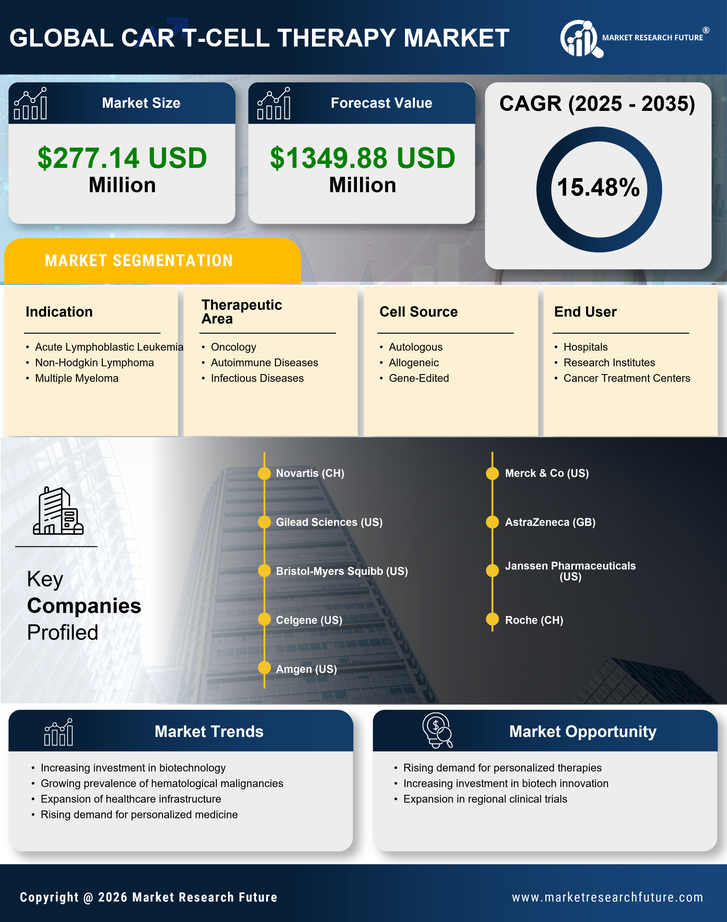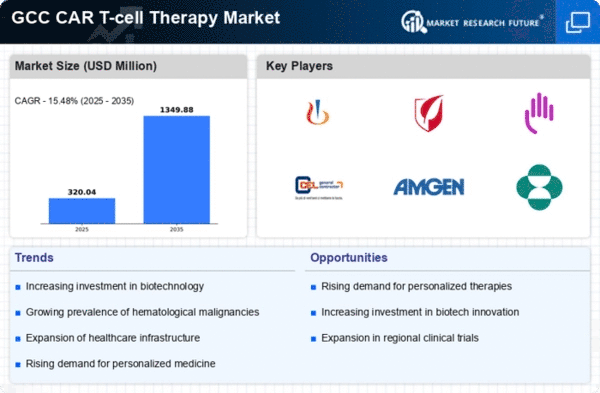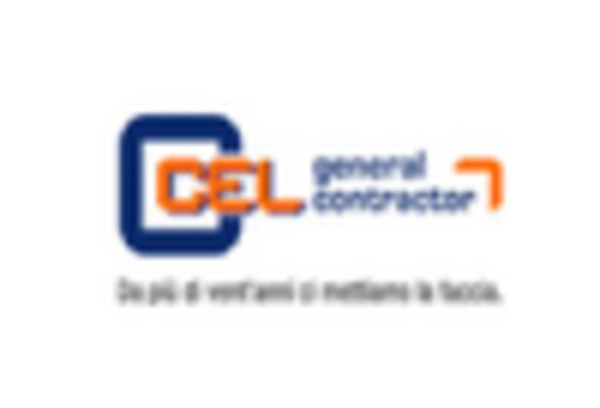Strategic Collaborations and Partnerships
Strategic collaborations and partnerships among pharmaceutical companies, research institutions, and healthcare providers are playing a pivotal role in the car t-cell-therapy market. These alliances facilitate the sharing of resources, knowledge, and technology, which is essential for the development and commercialization of car t-cell therapies. In the GCC, several partnerships have emerged, focusing on clinical trials and research initiatives aimed at enhancing treatment efficacy. Such collaborations are likely to accelerate the pace of innovation and bring new therapies to market more efficiently. The car t-cell-therapy market stands to gain from these synergies, as they contribute to a more robust pipeline of therapies and improved patient access to cutting-edge treatments.
Regulatory Support for Innovative Therapies
Regulatory bodies in the GCC are increasingly supportive of innovative therapies, including car t-cell therapy. This support is manifested through streamlined approval processes and the establishment of frameworks that encourage the development of advanced treatments. For instance, recent regulatory reforms have reduced the time required for clinical trial approvals, which is crucial for bringing new therapies to market. The car t-cell-therapy market is likely to benefit from this favorable regulatory environment, as it enables faster access to life-saving treatments for patients. As regulations evolve to accommodate the complexities of advanced therapies, the market is expected to experience accelerated growth and increased investment.
Rising Incidence of Hematological Malignancies
The incidence of hematological malignancies, such as leukemia and lymphoma, is on the rise in the GCC region, which is significantly impacting the car t-cell-therapy market. According to recent statistics, the prevalence of these cancers has increased by approximately 15% over the past five years. This trend is driving demand for innovative treatment options, including car t-cell therapy, which has shown promising results in clinical settings. As healthcare providers seek effective solutions to address this growing health challenge, the car t-cell-therapy market is likely to expand. The increasing patient population requiring advanced therapies underscores the urgent need for innovative treatments, positioning the car t-cell-therapy market for substantial growth.
Increasing Investment in Healthcare Infrastructure
The car t-cell-therapy market is experiencing a surge in investment directed towards healthcare infrastructure within the GCC region. Governments and private entities are allocating substantial funds to enhance medical facilities, which is crucial for the effective implementation of advanced therapies. For instance, the GCC healthcare expenditure is projected to reach approximately $100 billion by 2025, reflecting a commitment to improving patient care. This investment not only facilitates the establishment of specialized centers for car t-cell therapy but also ensures the availability of cutting-edge technology and skilled professionals. As a result, the car t-cell-therapy market is likely to benefit from improved access to treatment and enhanced patient outcomes, fostering growth in this innovative sector.
Growing Awareness and Acceptance of Advanced Therapies
There is a notable increase in awareness and acceptance of advanced therapies, including car t-cell therapy, among healthcare professionals and patients in the GCC. Educational initiatives and outreach programs are being implemented to inform stakeholders about the benefits and potential of these therapies. This growing awareness is reflected in the rising number of clinical trials and research studies focused on car t-cell therapy, which have increased by approximately 30% in the last two years. As patients become more informed about their treatment options, the demand for car t-cell therapy is expected to rise, thereby driving the market forward. The car t-cell-therapy market is poised to expand as acceptance of these innovative treatments becomes more widespread.
















